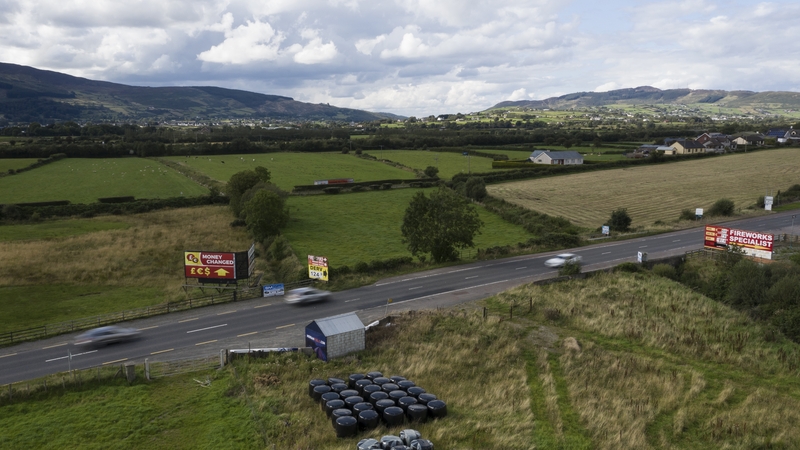An all-party committee has called for preparations for a united Ireland to begin "immediately", saying that every Government department should examine the implications of constitutional change.
In a report produced by the Committee on the Implementation of the Good Friday Agreement, politicians have also called on the Government to prepare and publish a Green Paper setting out a vision for a united Ireland.
The report, the first to be published by the committee, examines the current economic relationship between both sides of the border, and the potential of an all-island economy.
The report shows a major increase in cross-border trade, which has increased from around €2 billion in 1998 to some €20bn in 2022.
The report also examines the cost of a potential united Ireland and makes the case for planning for a united Ireland to begin.
The group, which met 11 times since April of last year, recommended that an Oireachtas committee be set up and resourced and dedicated to the preparations for a united Ireland.
It further recommended that preparations for a united Ireland should begin "immediately".
Chair of the group Fine Gael TD Fergus O'Dowd called for others to "seriously discuss" the issues around the possibility of constitutional change.
He also said that he hopes the change in the UK government will be a "reset" of relationships with the UK.

Mr O'Dowd said: "When we started all this there was a government in the United Kingdom which has now changed.
"As that change occurs, I think we are on a reset of the relationship between Britain and Ireland, which hopefully will have influence and will be important for us into the future.
"Relationships has huge implications for the issues that we're discussing, for the progress we may be able to make as a result of political change, about the willingness of our administration here, and indeed our parliament, to engage appropriately and properly with our colleagues in other parliaments, particularly in the United Kingdom and in the north.
"(The report) is very hopeful of the future and it's an opportunity that we can grasp for change, but change with consent. A united Ireland? Definitely, yes. But an agreed united Ireland? Definitely, yes."
Fianna Fáil TD for Cavan and Monaghan Brendan Smith said: "We can remove barriers to ensure greater participation as well.
"So incrementally, I believe we can build quite speedily at the same time, towards the achievement of a united Ireland that my people want to see achieved."
'No insurmountable barriers' to unity - Conway-Walsh
Sinn Féin TD Rose Conway-Walsh said the onus is on the Government to implement the recommendations contained in the report.
She said: "The economic success of the future of a united Ireland is in our own hands and there's no insurmountable barriers there to Irish unification.
"There will be variances in terms of the time that it might take, in terms of the duration, in terms of the transition period but also that none of those things are insurmountable.
"This report presents positive inclusive conversation that's taking place across the island in planning for constitutional change.
"I think the onus is on the Irish Government to implement the report's recommendations and that also includes a Green Paper on Irish unity and what needs to be done."
She also said that mistakes of Brexit need to be learned and that the Government has a "responsibility" in providing the framework.
Middle Ireland 'not ready' for unity - Feighan
Fine Gael's Frank Feighan said that the people of middle Ireland are not ready for a united Ireland.
He added: "I think the people we need to be talking to as well is the people in middle Ireland and I don't think middle Ireland is ready for a united Ireland."
He said that further conversations needed to be had with people from particular areas about what a united Ireland will look like.
Independent Senator Frances Black said there is a compelling case for planning for constitutional change.
Senator Emer Currie said there is "stark differences" in wages, life expectancy, disposable incomes and at-risk poverty between Northern Ireland and the Republic.
"It is clear from the report just how stark the differences are north and south," she added.
"We've spoken before about the difference in productivity levels, the difference in our wages, the differences in the life expectancy, disposable incomes average, on poverty.
"What's clear to me is, yes, we have a legacy of the troubles that contributes to that but also some of these issues are politically made. And it's very important that we shine a light on that and encourage change in those areas, including education."
